For Immediate Release: March 31, 2016
Contact:
Christina DiPasquale, 202.716.1953, christina@balestramedia.com
Courtney Holsworth, 989.572.8162, courtney@balestramedia.com
BREAKING: Lifeline Modernization Passed by the FCC is Critical for Diverse Communities
Today, the Federal Communications Commission voted to modernize the
Lifeline program. Lifeline currently offers a modest discount to low-income families struggling to afford basic landline or wireless phone service and will now expand to include broadband. Other key Lifeline reforms include instituting minimum service standards and streamlining the process of participation to encourage more phone and Internet service providers to take part in the program.
Said Jessica Gonzalez, executive vice president and general counsel at the National Hispanic Media Coalition:
“Low-income individuals are precisely the ones who need Internet service the most, for learning opportunities, job applications, health care needs, civic engagement and staying in touch, but are
often the least connected because they cannot afford the
cost of getting and staying online. The FCC’s decision today to modernize the Lifeline program, to include modest discounts for home broadband subscriptions, will reduce the inequality that keeps communities of color from taking advantage of the the vital opportunities that the Internet brings.
“We need bold vision for how to lift up this next generation—which is more than
25% Latino—to be the next doctors, lawyers, teachers, nurses, caregivers, creators and storytellers. Ensuring affordable access to broadband is a critical piece to this vision. When
half of all Latino households and 40 percent of African American homes go without broadband, the U.S. is investing in itself by committing to these important Lifeline reforms.”
An ardent supporter of Lifeline for nearly a
decade, the National Hispanic Media Coalition has been very active in the Commission’s ongoing modernization process over the past year, filing
comments and
reply comments. Recently, NHMC joined a
letter submitted by civil rights groups, public interest advocates, and communications companies urging the FCC to act swiftly to modernize the program and has endorsed many of the proposals laid out in a
draft order that the FCC circulated.
Expansion of the Lifeline program would:
- Narrow the Homework Gap. Seven out of ten teachers now assign homework that requires Internet access and nearly 50 percent of all students say they have been unable to complete a homework assignment because they didn’t have access to the Internet or a computer. Teenagers commonly use a library computer to complete their homework, where there can be long waits for timed access, and McDonald’s or other chains offering free WiFi when the library closes.
- Expand learning opportunities. Students with access to high-speed Internet their junior year of high school perform better on the SAT and apply to a higher and more expansive number of colleges. Students interested in pursuing higher education need the Internet to easily research higher education, and submit applications for admissions, scholarships and financial aid. Overall, 63 percent of public schools don’t have access to broadband speeds needed for digital learning as Common Core tests adopted across the country are moving to administer tests online.
- Provide greater opportunities for American workers. Online ads were posted for an estimated 60 to 70 percent of all job vacancies and the vast majority of Fortune 500 companies make their applications available only online. A full 34 percent of Internet users ages 25 and older conducted job searches online, and unemployed Internet users were more than twice as likely to use the Internet to look for employment as their employed counterparts. An estimated 30 million unemployed Americans relied on library computers and Internet access to conduct job-searches, submit job applications online, and receive job-related training.
- Increase access to medical care and health care information. Patients, particularly the elderly and those who live in rural areas, seek diagnoses and care from specialists online for more accessible and convenient medical care. A U.S. Department of Commerce report found that 35 percent used the Internet for research about health plans or providers and 42 percent went online to find a health diagnosis or treatment.
- Enhance civic participation. Going into the 2012 election, 34 percent of adults had engaged with a candidate or elected official online and 39 percent of American adults took part in some kind of political activity on a social networking site. A 2003 study found that access to the Internet increased the probability of voting by 12 percent and 31 percent of Internet users between the ages of 25 and 44 went online when looking for news.
]]>
